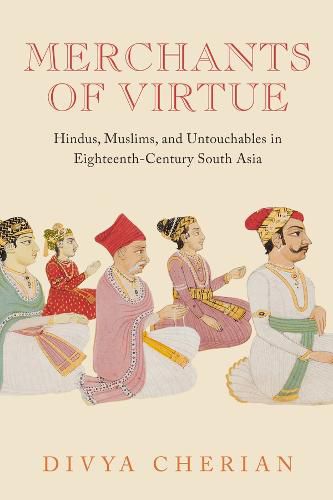Readings Newsletter
Become a Readings Member to make your shopping experience even easier.
Sign in or sign up for free!
You’re not far away from qualifying for FREE standard shipping within Australia
You’ve qualified for FREE standard shipping within Australia
The cart is loading…






A free ebook version of this title is available through Luminos, University of California Press's Open Access publishing program. Visit www.luminosoa.org to learn more.
Winner of the 2022 Joseph W. Elder Prize in the Indian Social Sciences
Merchants of Virtue explores the question of what it meant to be Hindu in precolonial South Asia. Divya Cherian presents a fine-grained study of everyday life and local politics in the kingdom of Marwar in eighteenth-century western India to uncover how merchants enforced their caste ideals of vegetarianism and bodily austerity as universal markers of Hindu identity. Using legal strategies and alliances with elites, these merchants successfully remade the category of "Hindu," setting it in contrast to "Untouchable" in a process that reconfigured Hinduism in caste terms. In a history pertinent to understanding India today, Cherian establishes the centrality of caste to the early-modern Hindu self and to its imagination of inadmissible others.
$9.00 standard shipping within Australia
FREE standard shipping within Australia for orders over $100.00
Express & International shipping calculated at checkout
A free ebook version of this title is available through Luminos, University of California Press's Open Access publishing program. Visit www.luminosoa.org to learn more.
Winner of the 2022 Joseph W. Elder Prize in the Indian Social Sciences
Merchants of Virtue explores the question of what it meant to be Hindu in precolonial South Asia. Divya Cherian presents a fine-grained study of everyday life and local politics in the kingdom of Marwar in eighteenth-century western India to uncover how merchants enforced their caste ideals of vegetarianism and bodily austerity as universal markers of Hindu identity. Using legal strategies and alliances with elites, these merchants successfully remade the category of "Hindu," setting it in contrast to "Untouchable" in a process that reconfigured Hinduism in caste terms. In a history pertinent to understanding India today, Cherian establishes the centrality of caste to the early-modern Hindu self and to its imagination of inadmissible others.